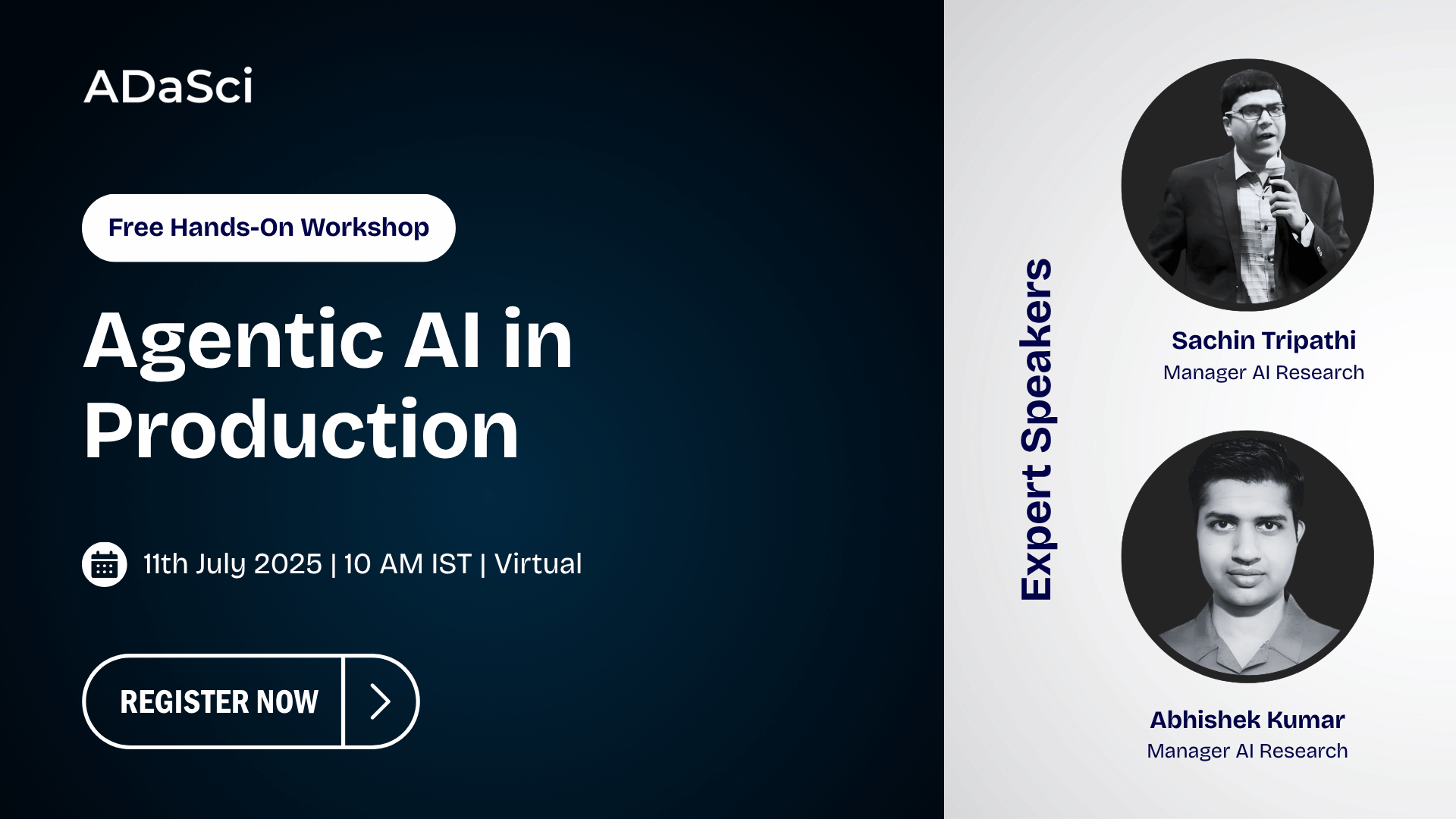Building Generative AI Powered Automated Data Analytics and Reporting Platform for Enterprises – A Workshop by Sourabh Mehta

Explore more from ADaSci
The Deep Learning DevCon (DLDC) was concluded with a highly informative and engaging workshop conducted by Sourabh Mehta, a prominent Data Scientist at AIM. The workshop focused on constructing a cutting-edge generative AI-powered data analytics and reporting platform for enterprises. Participants gained valuable insights into the potential applications of generative AI, its impact on various domains, and the transformative power it holds for enterprises.
Exploring the Power of Generative AI
The workshop covered a wide range of topics related to generative AI, including transaction anomaly detection, personalized recommendations, image and video generation, audio synthesis, data augmentation, and hyper-personalized email/message generation. Attendees were introduced to remarkable examples such as Google’s Music LLM, which generates new music samples, and the creation of GIFs and images by Meta.
Personalized Marketing and Tailored Lending Strategies
A significant challenge discussed during the workshop was the time-consuming nature of creating personalized emails or messages for a large number of customers. However, attendees discovered that by generalizing personalized marketing messages and leveraging customer data analysis, tailored lending strategies could be implemented efficiently. The workshop highlighted the importance of these strategies in enhancing customer experience and engagement.
Practical Implementation and Reporting Capabilities
The workshop included a live session where the practical implementation of the platform was demonstrated. Participants witnessed data preprocessing tasks, such as formatting alignment with SQL, handling missing values, and other essential steps. The processed data was then uploaded to a SQL server database, showcasing the platform’s seamless integration and reliability. Attendees also explored the platform’s reporting capabilities, which provided summarized information based on data segmentation and personalization techniques. The platform’s ability to generate loan documentation with a single click was particularly noteworthy.
Data Segmentation and Effective Deployment
Segmentation played a vital role in the platform’s functionalities. Workshop participants learned about different segmentation approaches based on demographics, preferences, loan types, funding amounts, and property valuation. The deployment of the platform was demonstrated using Streamlit, a framework chosen for its simplicity and ease of use. Attendees gained insights into the platform’s architecture and configuration settings, enabling them to understand its deployment process thoroughly.
Dynamic Content Generation and Customer Engagement
A notable feature of the platform was its ability to dynamically generate content, resulting in unique and personalized reports with each run. The workshop highlighted the platform’s generative AI component, which intelligently leveraged analysis reports to create tailored marketing messages. This capability increased customer attraction and engagement by offering personalized loan options and low-interest rates based on individual customer needs.
Advantages and Limitations
The workshop acknowledged both the advantages and limitations of employing generative AI. While the randomness inherent in the generative AI model may introduce challenges in consistency and quality control, the advantages, such as reduced manual effort, increased efficiency, and improved profitability, outweighed these limitations. Participants recognized the platform as an invaluable tool for automating data analytics and reporting processes.
Conclusion
The workshop on building a generative AI-powered automated data analytics and reporting platform for enterprises led by Sourabh Mehta was a resounding success. Attendees gained profound insights into the potential applications of generative AI across various domains, enabling them to enhance customer engagement, optimize offerings, and achieve higher levels of customer satisfaction. Armed with a deep understanding of the platform’s capabilities, participants left the workshop inspired to explore the implementation of generative AI in their organizations. The future holds immense potential for further advancements and refinement in this field, leading to automation, data-driven decision-making, and enhanced customer experiences in enterprises worldwide.






